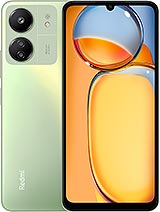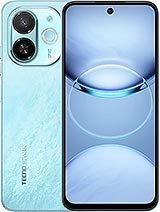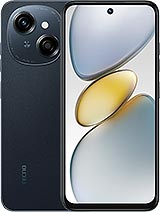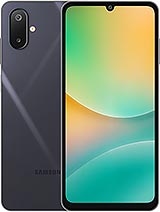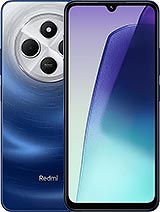Redmi 14C alternatives
Tap above to see alternatives.
Samsung Galaxy F06 5G alternatives
Tap above to see alternatives.
Samsung Galaxy F06 5G

Samsung Galaxy F06 5G
-
Dimensity 6300
6 nm
-
4999 mAh
23W
-
6.7"
720 x 1600 pixels
-
50 MP
1080p@30/60fps
2x2.2 GHz Cortex-A78
6x1.95 GHz Cortex-A55
2x2.4 GHz Cortex-A76
6x2.0 GHz Cortex-A55
4GB 128GB (UFS 2.2)
6GB 128GB (UFS 2.2)
6GB 128GB (UFS 2.2)
f/1.8, 27mm (wide), PDAF
Auxiliary lens
2MP
f/1.8, (wide), PDAF
2 MP
f/2.4, (depth)
f/2.0
f/2.0, (wide), 1/4.0", 1.12µm
SIM1: Nano, SIM2: Nano
SIM1: Nano, SIM2: Nano (Hybrid)
FDD: N1, N3, N5, N8, N28
TDD: N40, N78
FDD: N1, N3, N5, N7, N8, N26, N28, N66
TDD: N40, N41, N77, N78
FDD: N1, N3, N5, N8, N28
TDD: N40, N78
FDD: N1, N3, N5, N7, N8, N26, N28, N66
TDD: N40, N41, N77, N78
In this comparison, the Redmi 14C with the Qualcomm Snapdragon 4 Gen 2 (4nm) performs better than the Samsung Galaxy F06 5G with the Mediatek Dimensity 6300 (6nm), thanks to its more efficient chipset.
The Samsung Galaxy F06 5G offers 4 years of OS updates, while the Redmi 14C provides 2 years. These phones will receive the same duration of security updates.
Both phones use LCD panels. Moreover, it offers a higher 120 Hz refresh rate for smoother scrolling. Samsung Galaxy F06 5G also has a brighter display with 800 nits, improving outdoor visibility. These phones have the same resolution.
Redmi 14C has a larger 5160 mAh battery for longer usage. Samsung Galaxy F06 5G supports faster wired charging at 23W.
Redmi 14C has an IP52 rating, while Samsung Galaxy F06 5G lacks official water and dust resistance.


